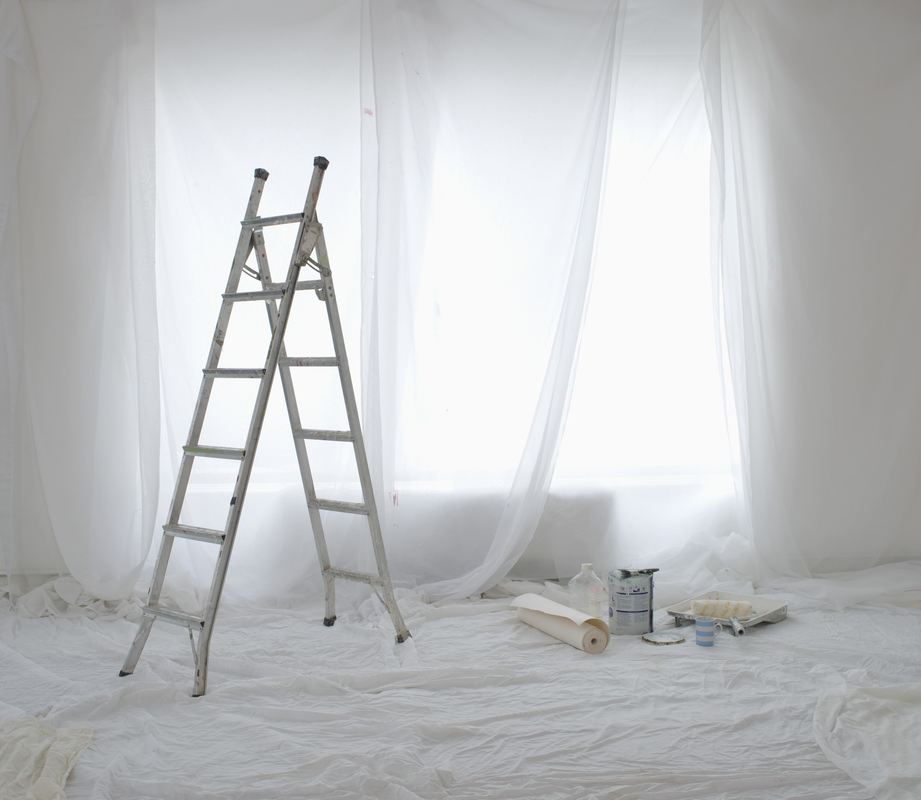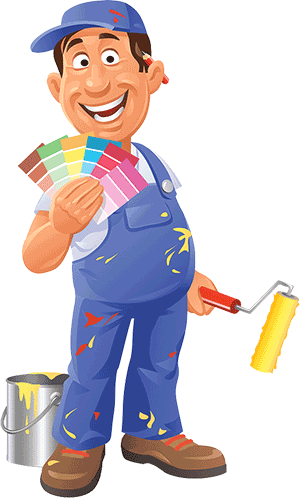Over 7.5 million households in Canada have a pet, so it is no surprise that homeowners are concerned about their pets when it is time to have their home painted. What are the risks? How can pets be protected during painting? Let us break it down for you here:
Risks to Pets
As a house is painted or even after the painting project is complete, there can be quite strong fumes from the fresh paint. It might be best to use fans and crack windows to help with ventilation. While high quality house painting companies do their best to minimize fumes, they are still there. Try to keep pets out of the area of fresh paint until the fumes subside. You could also investigate if your painter can use materials that are pet-friendly such as low or no VOC (Volatile Organic Compounds) paints. These tend to produce fewer fumes.
The process of preparing walls for painting can result in paint chips, equipment such as loose screws, cords or paint brushes left lying around by the contractor during the project. Small pieces are a choking hazard for your pet. The best way to avoid any issues is to keep the pet away from the area where the paint project is taking place. Another suggestion is to ask the contractor to leave equipment in the garage to minimize issues as much as possible.
Keeping your pet away from the painting project can also help your pet remain calm and unstressed during the renovations. Dogs and cats, in particular, are territorial and are used to the environment and people who live in the home with them. When the painters arrive, they are strangers, and they can create a lot of noise. This combination can be very stressful to pets and affect their behavior.
Last, there can be a lot of commotion and painters coming and going from the home with equipment. You would not want your pet to get loose and run off unnoticed in the process.
The risk to the Painting Project
It is not only for the pet’s safety that we recommend keeping it away from a painting project but also to ensure the project goes smoothly and ends with a good result. Pets are active and love to move around. Letting pets roam free during the painting project could mean that they cause a distraction and slow down the painter’s work. They could also knock something over or even get under the painters’ feet causing them to trip or fall. Even worse, a rambunctious or over-excited pet might even rub up against a freshly painted wall or track paint onto other unwanted surfaces such as furniture or flooring.
Keeping Your Pet and Painting Project Safe
If you have another room or area of the house where you can safely secure your pet, this can be a great solution. Make sure your pet is comfortable by moving their food, water, toys, bedding and litter box. If you do not feel you can safely relocate your pet to another part of the house, try asking a friend or neighbor to take the pet while the painters are in your home. If that is not an option, then you might want to consider taking your pet to a daycare during the short project or to a local kennel if the project is going take longer.
We have specifically referenced common pets like dogs or cats, but we would like to emphasize that birds and fish are extremely sensitive to paint, you will need to investigate additional precautions that need to be considered for these types of animals.
Risks to Pets
As a house is painted or even after the painting project is complete, there can be quite strong fumes from the fresh paint. It might be best to use fans and crack windows to help with ventilation. While high quality house painting companies do their best to minimize fumes, they are still there. Try to keep pets out of the area of fresh paint until the fumes subside. You could also investigate if your painter can use materials that are pet-friendly such as low or no VOC (Volatile Organic Compounds) paints. These tend to produce fewer fumes.
The process of preparing walls for painting can result in paint chips, equipment such as loose screws, cords or paint brushes left lying around by the contractor during the project. Small pieces are a choking hazard for your pet. The best way to avoid any issues is to keep the pet away from the area where the paint project is taking place. Another suggestion is to ask the contractor to leave equipment in the garage to minimize issues as much as possible.
Keeping your pet away from the painting project can also help your pet remain calm and unstressed during the renovations. Dogs and cats, in particular, are territorial and are used to the environment and people who live in the home with them. When the painters arrive, they are strangers, and they can create a lot of noise. This combination can be very stressful to pets and affect their behavior.
Last, there can be a lot of commotion and painters coming and going from the home with equipment. You would not want your pet to get loose and run off unnoticed in the process.
The risk to the Painting Project
It is not only for the pet’s safety that we recommend keeping it away from a painting project but also to ensure the project goes smoothly and ends with a good result. Pets are active and love to move around. Letting pets roam free during the painting project could mean that they cause a distraction and slow down the painter’s work. They could also knock something over or even get under the painters’ feet causing them to trip or fall. Even worse, a rambunctious or over-excited pet might even rub up against a freshly painted wall or track paint onto other unwanted surfaces such as furniture or flooring.
Keeping Your Pet and Painting Project Safe
If you have another room or area of the house where you can safely secure your pet, this can be a great solution. Make sure your pet is comfortable by moving their food, water, toys, bedding and litter box. If you do not feel you can safely relocate your pet to another part of the house, try asking a friend or neighbor to take the pet while the painters are in your home. If that is not an option, then you might want to consider taking your pet to a daycare during the short project or to a local kennel if the project is going take longer.
We have specifically referenced common pets like dogs or cats, but we would like to emphasize that birds and fish are extremely sensitive to paint, you will need to investigate additional precautions that need to be considered for these types of animals.



